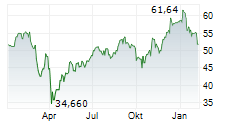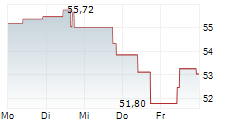
NEW YORK CITY, NY / ACCESS Newswire / February 26, 2025 / Deciding whether to consolidate your debt or declare bankruptcy can be complex. Both options have pros and cons; the best choice depends on your situation. In this article, we'll discuss the differences between debt consolidation and bankruptcy to help you understand which may be right for you:
What is Debt Consolidation?
Debt consolidation is a popular way to get a handle on mounting debts. It involves taking out a new loan to pay off smaller loans or lines of credit. This can be beneficial because it can result in a lower interest rate and manageable monthly payments.
However, debt consolidation is not for everyone. It's essential to research and understand your loan terms before signing on the dotted line. If done carefully, debt consolidation can save you money in the long run. For many people, it's an effective way to get a handle on their finances.
Methods to Consolidate Debt
Balance Transfers
One method of consolidating debt is to transfer the balances of your high-interest credit cards to one with a lower interest rate. This may help you save money on interest payments and pay off your debt faster. However, balance transfer cards often have fees, so make sure that your savings from the lower interest rate will outweigh the cost of the fees.
Personal Loans
Personal loans often have lower interest rates than credit cards, which might help you save on interest and pay off your debt quicker. Like balance transfers, personal loans may also have fees, so be sure that the potential savings are worthwhile.
Debt Consolidation Loans
A debt consolidation loan enables you to combine your outstanding debts into a single loan with one monthly payment. Debt consolidation loans typically have lower interest than credit cards, which can help you save in the long run.
Qualifying for Debt Consolidation
Most consolidation loans require that you have a good credit score. If you have not made payments or taken out too much credit in the past, you may not qualify for a consolidation loan.
Consolidation loans also often require proof of steady income. This is because lenders want to ensure you can afford your monthly payment.
Depending on the type of consolidation loan, you may require collateral, such as a car or home. This gives the lender a way to recoup its money if you default on the loan.
What is Bankruptcy?
Bankruptcy is a legal process that enables individuals or businesses to restructure or eliminate their debts. In most cases, bankruptcy is filed as a last resort after all other options for debt relief have been exhausted.
Different Bankruptcy Options
Chapter 7
Chapter 7 bankruptcy, also known as liquidation bankruptcy, allows you to discharge most of your debts, including credit card and medical debt and personal loans. To qualify for Chapter 7 bankruptcy, you may need to pass a means test, determining whether your income is low enough to qualify.
Chapter 13
Chapter 13 bankruptcy is also called reorganization bankruptcy. This type of bankruptcy allows you to repay your debts over three to five years. To qualify for Chapter 13, you may need a stable source of income and your unsecured debts should be less than $465,275.
Chapter 11
Chapter 11 bankruptcy is also known as a business reorganization bankruptcy. This type of bankruptcy is typically used by businesses but can also be used by individuals under certain limited circumstances. In a Chapter 11 bankruptcy, companies can continue operating while they repay their debts over time.
Bottom Line: Debt Consolidation or Bankruptcy?
No matter what you decide, understand that both options have their own set of pros and cons. If you feel like you can't handle your debt on your own, don't hesitate to reach out for help-there are plenty of qualified individuals who will give you the guidance you need to make the best decision for your unique situation.
SPONSORED CONTENT
CONTACT:
Sonakshi Murze
Manager
sonakshi.murze@iquanti.com
SOURCE: OneMain Financial
View the original press release on ACCESS Newswire


